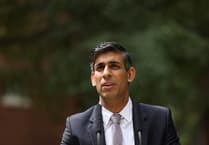A well-known Christian blogger has stated that he is struggling to know how to cast his vote because none of the parties seem to fully represent his views.
It will come as no surprise to learn then, that he has voted for several different parties over the years. I can understand that.
There is clearly no obvious Christian choice, and we don’t have a ‘Christian Party’ in the UK, but even if there was we can be sure that there would be believers who disagree with some of its policies. As the apostle Paul famously said, our knowledge is partial and incomplete and that means that we will inevitably disagree. We do over so many other things so why should we expect anything different?
Given this, what should we do if we are Christians? We could opt out of voting of course, but that would be an abdication of our civic and Christian responsibilities. Alternatively, we could spoil our ballot papers and say that we weren’t happy with any of the candidates but there surely has to be a better way than that.
I approach elections with two important considerations in mind. Firstly, I spend time looking at what the competing parties are saying and ask which of their policies best reflect Biblical teaching. This will include their approach to such issues as poverty and the right to life of course, but I also focus on other concerns like education and housing because God is concerned about social justice, and He wants us all to flourish. Jesus has told us that we are to love our neighbours as much as we love ourselves and so this should include the way we treat refugees too.
Secondly, and perhaps even more importantly, I spend time reflecting on the character of each candidate. Sadly, the latest research released by the Evangelical Alliance shows that a mere 12 per cent of evangelicals who responded to a recent survey said they trust politicians. This is only marginally higher than the nine per cent of the general population who say they do. This is a sad indictment on our political culture and, I would suggest, a danger to democracy itself. Apathy and disillusionment can give rise to lots of unwelcome political consequences.
I am also looking for politicians who will be open and honest with the electorate. People who will listen to their concerns and are prepared to give honest answers to simple questions. Sadly, all too many prefer to give polished and well-rehearsed responses which leave us all wondering what they really do believe. It can often be like looking through a glass darkly. I don’t expect everyone to agree with me of course, but it is vitally important that we engage in open, honest debate.
This means I need to get to know them. Candidates looking for our support should spend time getting to know their constituents. The occasional public event, the glossy leaflet or the social media video are not enough, which is why I have enjoyed arranging local hustings over the years. And strange as it might seem, my vote will be influenced by the way they talk to, and about their political opponents too. Disagreement is inevitable, but civility makes candidates extremely electable. Finally, I vote in faith, asking the ultimate ruler of history to determine the outcome.


